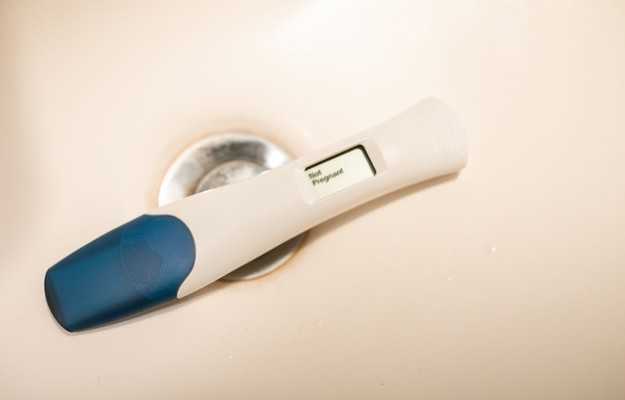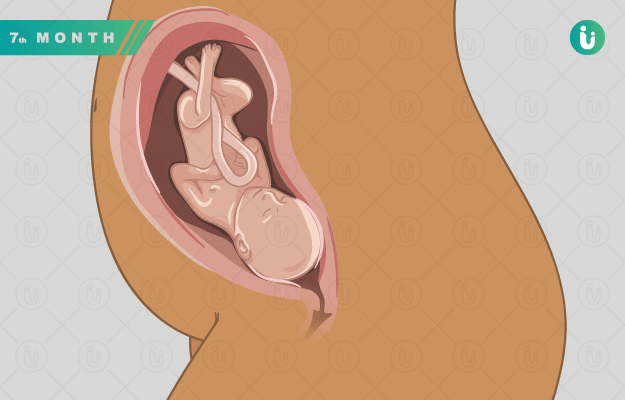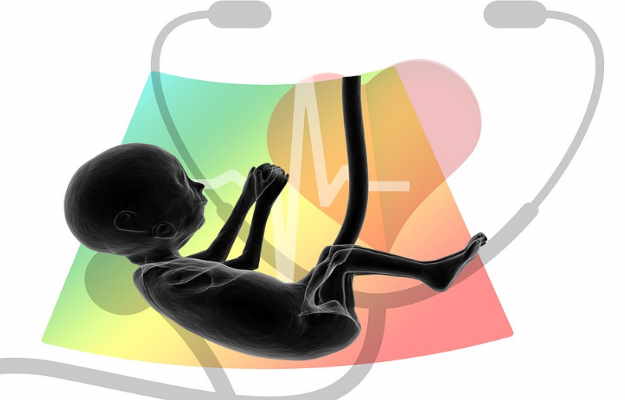Getting pregnant and having a baby is something many women want and think of as a happy experience. When you are pregnant, having a plethora of symptoms of pregnancy and perhaps even experiencing some complications is quite normal. Nausea, fatigue, swelling in the breasts, a missed period and mood swings are just a few of the symptoms associated with pregnancy.
But what happens when you show these clinical symptoms of pregnancy but repeated home tests reveal that you aren’t actually pregnant? This could happen in either of two cases: first is that you have a hormonal issue or reproductive health problem and second is that you have a case of a phantom pregnancy.
Phantom pregnancy, also known as false pregnancy, is a rare condition where even though there is no confirmed or actual pregnancy you are likely to have many symptoms of pregnancy. It may be easy to confuse phantom pregnancy with a miscarriage or even a chemical pregnancy since the symptoms actually do show up. However, in the case of a phantom pregnancy, there hasn’t been any implantation or conception at all and there isn’t any likelihood of there being a baby.
(Read more: Pregnancy)
The symptoms of phantom pregnancy can last long enough to make you and those around you feel like you are expecting a baby. A phantom pregnancy can, therefore, not only affect you physically but also leave a deep psychological impact. Proper diagnosis, treatment and care for someone with a phantom pregnancy is very important. In this article, you’ll find out everything you need to know about phantom pregnancy.
- What is false or phantom pregnancy?
- How common is false or phantom pregnancy?
- Causes of false pregnancy
- Symptoms of false pregnancy
- Diagnosis of false pregnancy
- Treatment of false pregnancy
- Counselling for false pregnancy
- Takeaways
What is false or phantom pregnancy?
Phantom pregnancy, clinically called pseudocyesis, is when a woman has an intuition of being pregnant when, in reality, there is no pregnancy. It is also known as a false pregnancy. This is a rare condition and usually occurs in women during their reproductive years. Pseudocyesis is an age-old condition and had even been described by Hippocrates in his writings in 300 B.C.
In pseudocyesis, women not only feel pregnant but their bodies might show some classic, if not all, symptoms of early pregnancy as well. Experts believe that pseudocyesis is psychosomatic in nature and some even categorize it as a psychopathological clinical syndrome. Rarely, the male partners of pregnant women might also start to experience phantom pregnancy. In the case of men, this condition is known as couvade or sympathetic pregnancy.
(Read more: Sleep during pregnancy)
How common is false or phantom pregnancy?
Though cases of phantom pregnancy have been reported since time immemorial, it is still considered to be a very rare and uncommon condition. Research suggests that most cases of phantom pregnancy have historically occurred in married women with a deep desire for a baby. Queen Mary Tudor of England, for example, suffered multiple phantom pregnancies out of her deep desire for an heir that never arrived. Yet, cases of phantom pregnancy also show up in patients without any history of sexual activity when they have a severe mental health disorder and psychosis. Being on antipsychotic drugs can also trigger symptoms of a phantom pregnancy.
A study published in the World Journal of Clinical Cases in 2014 suggests that even though phantom pregnancies are now becoming rarer still, thanks to accurate and easily accessible pregnancy tests, most of the cases emerging nowadays come from developing countries like India. In these countries, lack of knowledge about reproduction and infertility and living in a pronatalist society combine to lead to trauma in infertile couples. Often, the infertility is solely blamed on the woman, which causes considerable distress and discrimination. This can also increase the number of phantom pregnancies experienced by women in these countries.
(Read more: In vitro fertilization)
Causes of false pregnancy
The clear causes of pseudocyesis are still unknown but there are some theories proposed by researchers that may explain why some women experience phantom pregnancy. The following are some such causes that are believed to be behind phantom pregnancy.
- Intense desire: One of the most common explanations given for why a phantom pregnancy occurs is an intense desire to have children. Experts believe that such an intense desire can affect the endocrine system and cause hormonal changes that lead to symptoms similar to those seen in pregnancy.
- Infertility or miscarriage: Multiple or recurrent miscarriages and infertility also affect the body deeply, especially where the hormonal balance and proper working of the reproductive system are considered. This can lead to the emergence of symptoms of a false pregnancy. What’s more, many reproductive health issues that are associated with infertility, like polycystic ovary syndrome and uterine fibroids, can also lead to symptoms like skipped periods, bloating, weight gain and mood swings which are normally associated with pregnancy.
- Mental health issues: Having a mood disorder, depression or a neuropsychological issue like neurosis or psychosis can cause chemical changes in the brain and the nervous system. These changes also affect the endocrine system and may lead to hormonal changes that occur during pregnancy. Similarly, some antipsychotic medications can also cause these chemical and hormonal changes and result in symptoms that mimic pregnancy.
Symptoms of false pregnancy
The symptoms of false pregnancy are similar to that of pregnancy. This actually helps confirm the belief of those suffering from it that they are pregnant and adds further complications to the situation. The symptoms can last from a few weeks to months and are mostly diagnosed as a phantom pregnancy only when the woman in question takes multiple pregnancy tests or visits a doctor for a proper diagnosis. The following are some of the common symptoms of phantom pregnancy:
- Missed period
- Swollen belly
- Tender breasts
- Changes in breast size and areola
- Increased appetite
- Mood swings
- Weight gain
- Frequent urination
- Nausea and vomiting, usually in the mornings or daytime
- The sensation of movement or contractions in the abdomen
- Lactation and false labour in extreme cases
Diagnosis of false pregnancy
The primary test to confirm a false pregnancy is the urine test that is usually done to confirm a pregnancy. This is an important point to remember, though all of the phantom pregnancy signs could mimic a real pregnancy, the production of pregnancy hormone hCG (human chorionic gonadotropin) cannot be mimicked. The urine test will come back negative if you have a phantom pregnancy. Similarly, the hCG will also be absent in the blood, thus a blood test - if conducted - will also show a negative result for pregnancy.
Another confirmatory diagnostic test would be the ultrasonographic imaging of the pelvic (lower abdomen) region. This confirms the absence of both a foetus inside the uterus (womb) and a foetal heartbeat. Moreover, an ultrasound can also help diagnose other medical conditions that are capable of mimicking the symptoms of pregnancy, such as an ectopic pregnancy (foetus grows outside the womb), morbid obesity and tumour or cancer in the reproductive organs.
(Read more: Endometrial cancer)
Treatment of false pregnancy
It can be quite disheartening for a woman to realise that she is not pregnant, especially if she has an intense desire to be so. Breaking the news that she has a phantom pregnancy should therefore be handled delicately. A doctor must break the news gently and with irrevocable proof in the form of various tests. The woman who is getting this shocking news must ideally be accompanied by their partner, friend, family or a loved one so that she can be consoled when the news is broken to her.
Usually, a phantom pregnancy does not require any medical treatment unless the underlying cause behind it calls for it. For example, if you had a phantom pregnancy because of a reproductive health issue or a tumour, the medications, lifestyle changes and treatment protocol may be provided to you by the doctor.
(Read more: What is therapy?)
Counselling for false pregnancy
Thinking that you are expecting a baby and then finding out that there was never a pregnancy at all can be traumatic for any person. Coping with such news and moving on with your life can be very difficult for some and so any woman who has suffered from a false pregnancy should be provided with proper therapy and counselling.
The American Pregnancy Association also recommends that a thorough psychological and neurological evaluation be done for women who suffer from a phantom pregnancy. This is because psychological and neurological problems can often cause phantom pregnancy, and the woman may require psychotherapy, cognitive behavioural therapy, medications and ample support to recover from this condition with her physical as well as mental health intact.
Takeaways
Phantom pregnancy may be a rare condition but it still occurs in regions of the world where proper knowledge of reproductive health and easy access to healthcare aren’t available. This makes providing the general public in these countries with proper information about phantom pregnancy a very important task. Equally important is easy access to home pregnancy tests, psychological support and an action plan to counter the stigma still associated with infertility. Focus is also required on mental health so that psychosis related to phantom pregnancy can be effectively reduced.
If it does occur, dealing with a phantom pregnancy can be a very delicate issue. Not only does the family of the patient need to provide ample support but the doctors also need to be thorough with their diagnostics so that the trauma of the event isn’t repeated and the patients get the help they deserve. The importance of psychological counselling, in this case, cannot be emphasized enough.
Find Obstetrician and Gynaecologist in cities
- Obstetrician and Gynaecologist in Bangalore
- Obstetrician and Gynaecologist in Mumbai
- Obstetrician and Gynaecologist in Ghaziabad
- Obstetrician and Gynaecologist in Chennai
- Obstetrician and Gynaecologist in Pune
- Obstetrician and Gynaecologist in Delhi
- Obstetrician and Gynaecologist in Hyderabad
- Obstetrician and Gynaecologist in New Delhi
- Obstetrician and Gynaecologist in Gwalior
- Obstetrician and Gynaecologist in Gurgaon
Doctors for False pregnancy : Causes, Symptoms, Treatment

Dr. Ayushi Gandhi
Obstetrics & Gynaecology
4 Years of Experience

Dr. Anjali
Obstetrics & Gynaecology
23 Years of Experience

Dr.Anuja Ojha
Obstetrics & Gynaecology
20 Years of Experience

Dr. Geeta Kulkarni
Obstetrics & Gynaecology
7 Years of Experience
References
- American Pregnancy Association [Internet]. Irving, Texas, USA; What is a False Pregnancy or Phantom Pregnancy?
- Wang, Jay Ching Chieh. Pseudocyesis Due to Chronic Constipation and Large Bowel Dilation Secondary to a Long-Standing Opioid Use Disorder: A Case Report. Psychosomatics 60(3). 2018
- Campos, Stephanie J. et al. Pseudocyesis. The Journal for Nurse Practitioners, Volume 12, Issue 6, June 2016.
- Signer, Stephen F. et al. Pseudocyesis in Organic Mood Disorders: Six Cases. Psychosomatics Volume 33, Issue 3, August 1992, Pages 316-323.
- Azizi, Marziyeh and Elyasi, Forouzan. Biopsychosocial view to pseudocyesis: A narrative review. Int J Reprod Biomed. 2017 Sep; 15(9): 535–542. PMID: 29662961
- Tarín, J.J.et al. Endocrinology and physiology of pseudocyesis Endocrinology and physiology of pseudocyesis. Reprod Biol Endocrinol 11, 39 (2013).
- Seeman, Mary V. Pseudocyesis, delusional pregnancy, and psychosis: The birth of a delusion. World J Clin Cases. 2014 Aug 16; 2(8): 338–344. PMID: 25133144









































